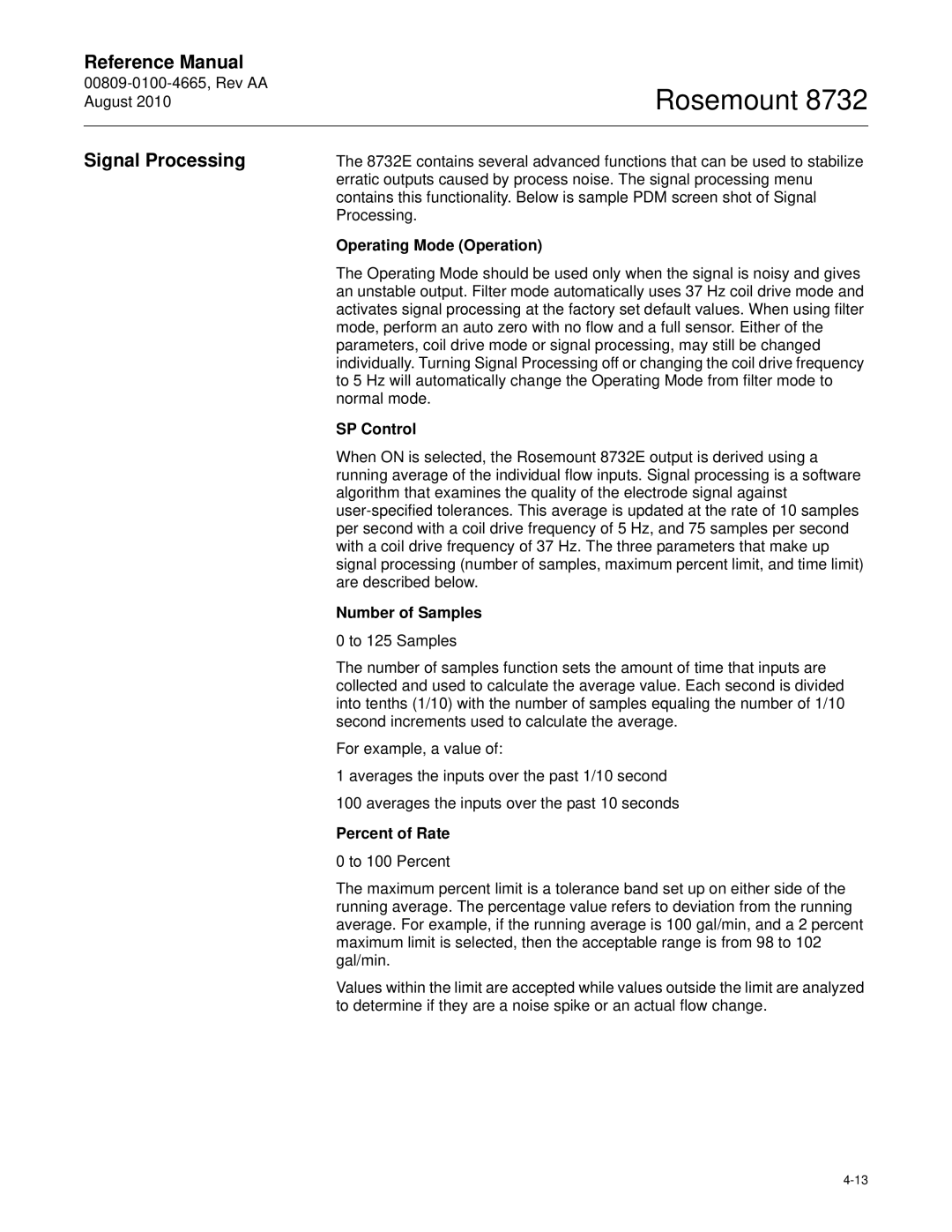Reference Manual
Rosemount 8732
Signal Processing
The 8732E contains several advanced functions that can be used to stabilize erratic outputs caused by process noise. The signal processing menu contains this functionality. Below is sample PDM screen shot of Signal Processing.
Operating Mode (Operation)
The Operating Mode should be used only when the signal is noisy and gives an unstable output. Filter mode automatically uses 37 Hz coil drive mode and activates signal processing at the factory set default values. When using filter mode, perform an auto zero with no flow and a full sensor. Either of the parameters, coil drive mode or signal processing, may still be changed individually. Turning Signal Processing off or changing the coil drive frequency to 5 Hz will automatically change the Operating Mode from filter mode to normal mode.
SP Control
When ON is selected, the Rosemount 8732E output is derived using a running average of the individual flow inputs. Signal processing is a software algorithm that examines the quality of the electrode signal against
Number of Samples
0 to 125 Samples
The number of samples function sets the amount of time that inputs are collected and used to calculate the average value. Each second is divided into tenths (1/10) with the number of samples equaling the number of 1/10 second increments used to calculate the average.
For example, a value of:
1 averages the inputs over the past 1/10 second
100 averages the inputs over the past 10 seconds
Percent of Rate
0 to 100 Percent
The maximum percent limit is a tolerance band set up on either side of the running average. The percentage value refers to deviation from the running average. For example, if the running average is 100 gal/min, and a 2 percent maximum limit is selected, then the acceptable range is from 98 to 102 gal/min.
Values within the limit are accepted while values outside the limit are analyzed to determine if they are a noise spike or an actual flow change.
